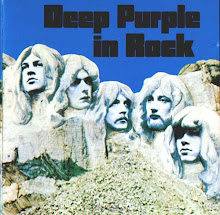Last month, I spent a few days in Guiyang, the capital city of the southern province of Guizhou.
On my first evening, I discovered a strip of three bars side by side, and joked by SMS that I must have stumbled upon the city's equivalent of Sanlitun - Beijing's sleazy central nightlife hub. One had a bizarre jumble of titles I can't quite recall now: I think Top VIP Club was at the heart of the mix, but 'Brand New' and 'Superior', or something of that sort, were in there too. It looked horrendous, but fortunately it was not yet open at 6.30pm. The nearly identical joint next door appeared to be called Temptation, and seemed to be going for a Xinjiang flavour. Well, it had a rather sexy photograph of an Arabian belly dancer on its sign; but that may have been a cheap attention-getting ploy that bore no relation to the theme of the bar or the entertainments it provided. It was also closed, so I couldn't investigate. On the other side of the Top VIP Club was a place called something like Trade Winds (or Tea Time... or Tea Wind? my memory is getting very wobbly of late!), which was at least open. More of a café, though. Decent cup of coffee and a pretty waitress, but altogether too bright and cheerful - not a bar feel.
So, not exactly Sanlitun.
But I had jumped to the conclusion that this would be it, because Guiyang is a lower-tier city, tiny compared to Beijing or Shanghai: you could fit the whole of it quite comfortably inside the Beijing's 2nd Ringroad (in fact, probably inside the area north of Chang'an Avenue). And even in the more advanced second-tier cities, like Nanjing or Hangzhou, foreign-style bars are still rare as hen's teeth. Many quite large cities in the less developed parts of China have no bars at all, god bless 'em. I don't think there were any in Kaili, Guizhou's second city, which I'd visited the week before.
Moreover, you expect the development of a Western-style bar scene to be largely led by tourism, or a resident expat population. Guizhou is a popular destination for Chinese tourists, but is pretty much off the radar for foreigners. And tourism is mainly centred on Kaili, anyway. Guiyang is drab, polluted, lacking in any obvious attraction for visitors. I don't think it draws many foreign business travellers either. I stayed in the Ramada for 4 days, and saw only 2 other foreigners there; I didn't see ANY out and about on the city's streets. And the keenest adopters of a Western-style drinking scene amongst the Chinese tend to be university students. Of course, as the provincial capital, Guiyang has a university; probably several, in fact; but its student population is a tiny fraction of that you'd find in a major city.
But something weird is happening in Guiyang. They seem to be experiencing a Bar Event Horizon. I saw dozens of bars there; and not confined to a few narrow districts, but liberally scattered all over the city centre. And plenty of new ones seem to be springing up: I saw several premises that appeared to be undergoing restaurant-to-bar conversions. I'd guess this place might well have more bars than Beijing. It's not very far behind, anyway; and it's barely a quarter of the size, and has only a fraction of the income, and virtually zero expat population.
What is driving this extraordinary boom?? I really can't imagine. It is one of China's great mysteries.
At the remote prompting of JK, a mate who owns a bar here in Beijing, I went to check out out a bar called SOHO, which he told me had received a number of good write-ups on TripAdvisor (actually, only two not particularly convincing ones). Yet again, it was not open during the day, or even in the early evening. When I got there at around 5.30pm, the doors were open, so I wandered in for a look around. The staff were all seated in a row on a long bench seat, apparently awake but in a state of such complete catatonia that you fancied someone had taken the batteries out of them. They did not challenge my intrusion. When I asked when they were open for business, one of them grunted that it would not be until 8pm... "or maybe 9." When they say 'nightlife', it seems they really mean 'nightlife' in Guiyang!
SOHO, despite the unwelcoming demeanour of the staff, was, um, intriguing. Not enticing, I wouldn't say, but intriguing. It was huge, and quite impressively decorated, with wooden bar and furniture inside and redbrick cladding on the exterior which gave it something of the feel of Manhattan's Meatpacking District. However, I suspect that those positive online reviews either came from people who were too easily impressed - pleasantly surprised! - at finding a bar in Guiyang at all, or were confusing it with the dangerously similarly named Soho Times (which is, I gather, much smaller, and upstairs in a hotel - but foreign-owned). The drinks list wasn't very cheap, and mostly priced by the bottle. The main area was crowded with tall, high tables and stools, designed for couples or singletons, which is, I think, a peculiarly Chinese - or Asian, anyway - idea. I can see that there's some sense in it, but it does tend to inhibit the sociability of a bar; indeed, it seems to assume that people who frequent bars have no friends (um, so, yes, I can see that it makes a lot of sense, actually; no, not really - I'm just feeling glum about my recent abandonment by all of my friends). "Entertainment" seems to come mainly in the form of a house band, who, I would imagine (it's a safe bet!), play cheesy Chinese folk-pop. Apart from the unexpected hint of class conjured by the decor, this looked fundamentally like your typical Chinese nightclub - to put it in Beijing terms, more Vic's or Mix than The Den or 1st Floor.
The major benefit of this abortive expedition was that it brought me to Kexue Lu, the street on which SOHO is nominally situated (although in fact it fronts on to the much bigger - but mysteriously unnamed?! - main road around the corner), and Kexue Lu is such a spectacularly grotty little enclave that I found it quite fascinating (the rather glitzy SOHO is glaringly out of place in this rundown locale): it's a short, narrow alleyway, barely 150 yards long, which winds between two large buildings which look like disused warehouses - both rather old and careworn, in advanced states of disrepair, and surely to be slated for demolition sooner rather than later. But for now, tiny, sleazy little bars seem to be blooming like mushrooms out of this dismal patch of inner city decay.
Of course, none of them were open when I cruised past shortly before 6pm. So, this, I'm afraid is why I am unable to comment more incisively on what is behind the apparent boom in Guiyang's bar scene: I didn't actually manage to go into a single bar while I was there, because I was on the lookout for an afternoon reviver or a pre-dinner drink, and the earliest any of these places seemed to open was 7pm.
One of those little bars on the Kexue strip was called Dear Life. As in "RUN for dear life!" Not the most positive associations for an English speaker, perhaps, but I rather liked it. If I ever go back to Guiyang, I think Dear Life is more likely to get my custom than SOHO.






No comments:
Post a Comment